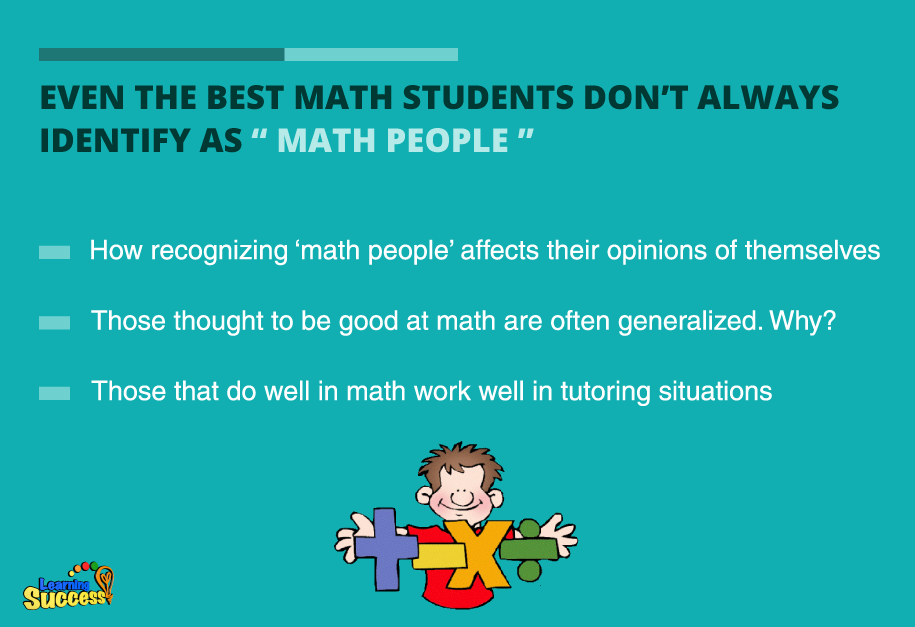
It seems obvious: when you meet someone who excels as math, you probably assume they identify as a "math person." But is it possible that identifying as a math person may not be directly tied to academic performance?
Passing judgement has an effect
It's human nature to make generalizations. We do it based on race, religion, creed, and sexuality. Academics bear little difference -- a student that excels at English is "free-spirited," another that's good at science is a "potential doctor." Many students that fall into categories experience a sublimation of the field of study they were considered "best" at achieving.
For math -- a subject many students and adults struggle with -- it's common to believe that some people are just "math people," as if they have brains hard-wired to be better at math than others. We pass these judgements all the time, but new studies are showing that this line of thinking is not only flawed, but actually harmful.

Math ability is not the same as math identity
Researchers conducted a recent study to determine what, exactly, makes students identify as "math people." Researchers surveyed 9,000 college students over more than 130 colleges and universities, all taking a calculus course during the same semester. From the results, the researchers determined what separated students who identified as good at math, from those students who didn’t identify as being good at math.
Interestingly, students who identified as “math people” cited being interested in math, and perhaps more importantly, being recognized as being good at math by the people in their lives.
This means if family, friends, and educators acknowledged the student as a “math person,” then the student was much more likely to identify as such -- the actual math ability didn’t factor as strongly into their math identity!
Encouragement and acknowledgement makes a "math person"
This makes sense -- those studies also showed that many students who excelled at math in school are not going into mathematically related fields. Sometimes, they identify as "math people" not because they're any better at it than others, but simply because their families and teachers greatly encouraged them to succeed.
Conversely, students who are naturally good at math often find themselves getting bored of the subject or collapsing from the pressure of being the "best."
This combination of boredom and anxiety could be helped with positive encouragement from teachers and parents, but if it's only pressure to succeed further rather than acknowledgement of their current successes, they often veer off their path.
Key Takeaways:
Making math students feel included
Ultimately, a student who is noticed for math abilities may not be given opportunities to feel confident about their own math skills, with the focus instead being on their "innate talent" rather than the work they'd put into honing those skills.
What parents and teachers need to remember is that there are ways to make students that excel in math feel included. Allowing them to tutor struggling students not only gives them a sense of accomplishment, but it also gives them the interest and motivation to continue their venture into mathematics. Our future generation of math teachers, professors, and master engineers need all of the support they can get.
That said, while it’s understandable for parents to hope their child will go on to major in a math-related course, not every "math person" wants that. But if parents want to encourage their child’s “math identity,” they need to understand that students must feel that their math abilities and learned skills are recognized by other people. Learning Success System can help hone those skills, and you can get started now by taking our free assessment here.
Do You Need help with a Math Difficulty?
Our simple online analysis will help you get to the core of the problem and find the right solution for you.
Understanding how to help someone with a learning difficulty starts with understanding which micro-skills are affected. When you learn which of the micro-skills is the problem, you will then be on your way to solving it.
You'll also learn how to:
- Build confidence
- Enhance Learning ability
- Eliminate avoidance
- Build grit
You can get this analysis for free by filling out this simple form. This will help you get to the bottom of a learning difficulty and provide you with a solution. If you are ready to put this problem behind you click the button below and fill out the form.










